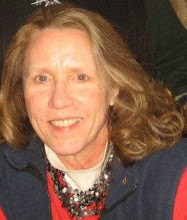 (Image: Will Simpson Open Source Photography)
(Image: Will Simpson Open Source Photography)AMERICAN COLLEGE OF EMPLOYEE BENEFITS COUNSEL
Writing Competition Rules
1. Eligibility/topics. Except as provided in (6) below, applicants must be enrolled full-time or part-time in law school between August 15, 2010 and August 15, 2011 and seeking a J.D. or a graduate law degree (e.g., L.L.M. or S.J.D.). Papers must deal with employee benefits topics. As an illustrative example, a paper might address legal issues involving health benefits, pensions, 401(k) plans, severance, executive compensation, claims, appeals, current or former spouses' or domestic partners' benefits, collectively-bargained benefits, benefits in bankruptcy, ERISA litigation, fiduciary obligations or the tax treatment of benefits/contributions.
a. Papers should not exceed 40 pages (double-spaced, in 12 point type, with an inch margin on each side), not including footnotes. Footnotes should be single spaced endnotes starting on a separate page.
b. Papers must be submitted as email attachments to peter.kelly@bcbsa.com and should be submitted as Word or pdf documents. No information identifying the author or law school should be included in the text, the footnotes or the filename. That information, an address, a telephone number and enrollment status information should be provided in the email message.
c. Submissions may include papers prepared for class assignments, law journals or other purposes, as well as those written especially for the Competition.
d. Student papers submitted for publication in law reviews or other law school journals or periodicals but not yet published are eligible for the Competition, provided that (i) the version submitted for the Competition does not reflect any changes made to the paper after submission of the manuscript to any publication and (ii) the College receives any consents necessary to publish.
2. Selection of winners. Winning papers will be selected by the Writing Competition Committee based on the factors they deem relevant. Among other factors, the Committee will consider: (i) depth and creativity of legal analysis; (ii) thoroughness of legal research; (iii) organization and writing style; (iv) difficulty of subject matter; and (v) consideration of employee benefits policy implications. The determination of the Committee is final. It is anticipated that winners will be notified by August 15, 2011, or shortly thereafter.
3. Publication of winning article(s). The College will use its best efforts to arrange for publication of the winning papers in the BNA Pension and Benefits Reporter, the BNA Tax Management Compensation Planning Journal or other professional publications, subject to receiving any necessary consents from the author and any other journal. In addition, the winning papers will be distributed to the Fellows of the College.
4. Prizes. Cash prizes will be awarded for up to two winning papers. The College may, in its discretion, decide to split prizes, to award additional prizes or to award fewer than two awards.
5. Deadline. Papers must be submitted in the manner described in paragraph 1(b) above and must be received no later than Midnight Central Time on June 1, 2011.
6. Disclaimer. The College disclaims responsibility for any failure to give due consideration to any submission due to any email or other electronic transmission, storage or archival errors, regardless of the cause. However, the Committee may waive the eligibility requirements applicable to any student whose properly submitted paper was not afforded due consideration on account of such an error in a prior year's contest.
Questions concerning the Competition should be directed to Peter Kelly, Chair of the ACEBC Writing Competition Committee at peter.kelly@bcbsa.com.
Image: Will Simpson Open Source Photography




